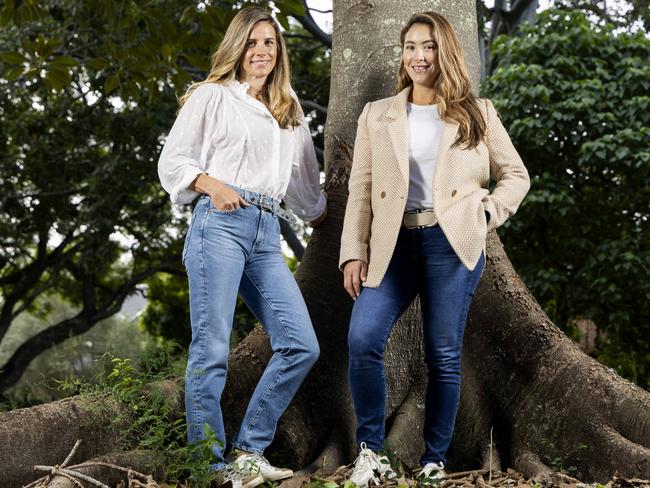Data dump: How social media age check will preserve privacy
Australians would not need to hand over personal information to social media giants in order to verify the age of account holders, it has been revealed.
QLD News
Don't miss out on the headlines from QLD News. Followed categories will be added to My News.
Australians would not need to hand over personal information to social media giants in order to verify the age of all account holders, with multiple automated identity check providers able to check then dump data to protect privacy.
Instagram, big banks, car dealers and car hire companies are already using age verification providers in Australia to confirm the age and any other necessary customer details online within minutes.
Many offer a selection of options on how users can prove their age or ID, and then only a confirm or denied status is passed on to the companies, before the information is dumped.
Yoti’s technology uses live facial analysis to estimate a person’s age without the need for identity documents with accuracy of 99.33 per cent for people under 25.
IDVerse, who work with Westpac, ANZ, HSBC, BMW and Hertz, use facial analysis technology to compare with photos on government-issued IDs to verify adults over 18, with data deleted instantaneously.
Both verification providers are keen to work with the Federal government on its $6.5m trial aimed at testing different age estimation and assurance technologies to help protect children from online harm.
Details of the trial are yet to be revealed but there have been calls for its scope to include social media, amid News Corp Australia’s Let Them Be Kids campaign for children under 16 to be restricted from having their own accounts.
Griffith University cybersecurity expert David Tuffley said the reliability of age assurance technology had improved greatly in recent years with providers now vying to come up with “demonstrably the best solution” for checks that will be suitable for children.
“I think what we want is a system that can be relied upon to prevent minors from being exposed to harmful content,” he said.
“It seems to be a pressing and important issue and that’s the sort of motivation that governments need to get things done.
“I think within a year to two years we’ll have something pretty solid.”
IDVerse’s head of global privacy Peter Violaris said it could be hard for consumers to stomach handing over any information about themselves but their services and that of others provided robust anonymity.
“Services like ours are fully automated. There’s no person looking at your document, or your face,” he said.
“They go through our journey which is to scan an ID, scan their face, and then we delete that data instantaneously. So we don’t hold it even for a second.”
Dr Tuffley said third party age insurance providers would need to enter into services agreements with companies and it would need to be legislated how long any data should be retained, if at all.

PARENTS GIVEN CRITICAL SKILLS
Two mothers who started a first-of-its-kind not-for-profit helping Australian families with digital health are developing a national platform to upskill parents on how to navigate technology use with their kids.
Brisbane mother-of-four Mackenzie Forrester founded Screen Sanity Australia in 2021 after a discussion with parents in a school carpark about growing device dependence among students and adults.
The group partnered with US-based Screen Sanity and spent a year creating localised online and in-person content, resources and education programs for parents.
Last year, they partnered with schools, corporates and community organisations in Queensland to run 23 workshops, which reached more than 2000 parents.
“We are the last generation of parents who truly know what a childhood without a smartphone was like,” Ms Forrester said. “This is a time when we need to build resilience in our youth more than ever and yet we are directing them to places that notoriously crush self esteem.
“Our kids … need parents, mentors and guides to be an active part in the ‘onboarding’ of all devices, from video games, to school iPads, to smartphones with social media.”
Ms Forrester said she and co-director Fiona Foxon were working hard to implement a pilot with the Queensland education department to roll out their parent-focused workshops into school communities across Brisbane with the hope they could go statewide and then national.
“It is our vision and hope that Queensland can take the lead on a national ‘Parent Partner Program’ that helps upskill parents with the tools, resources and confidence to raise their digital natives,” she said. “We know that poor awareness of screen behaviour in the home leads to conflict and issues in school environments. We want to support educators and leaders to empower parents to have the skills they need to work with screens safely.”
A Department of Education spokesman said the Screen Sanity program complemented its approach to eSafety by raising awareness in school communities, building partnerships with stakeholders and giving the community the guidance and resources to respond to the online world with confidence.
Screen Sanity Australia’s new website launches at the end of June with online training, workbooks, podcasts and downloadable guides.
More Coverage
Originally published as Data dump: How social media age check will preserve privacy




